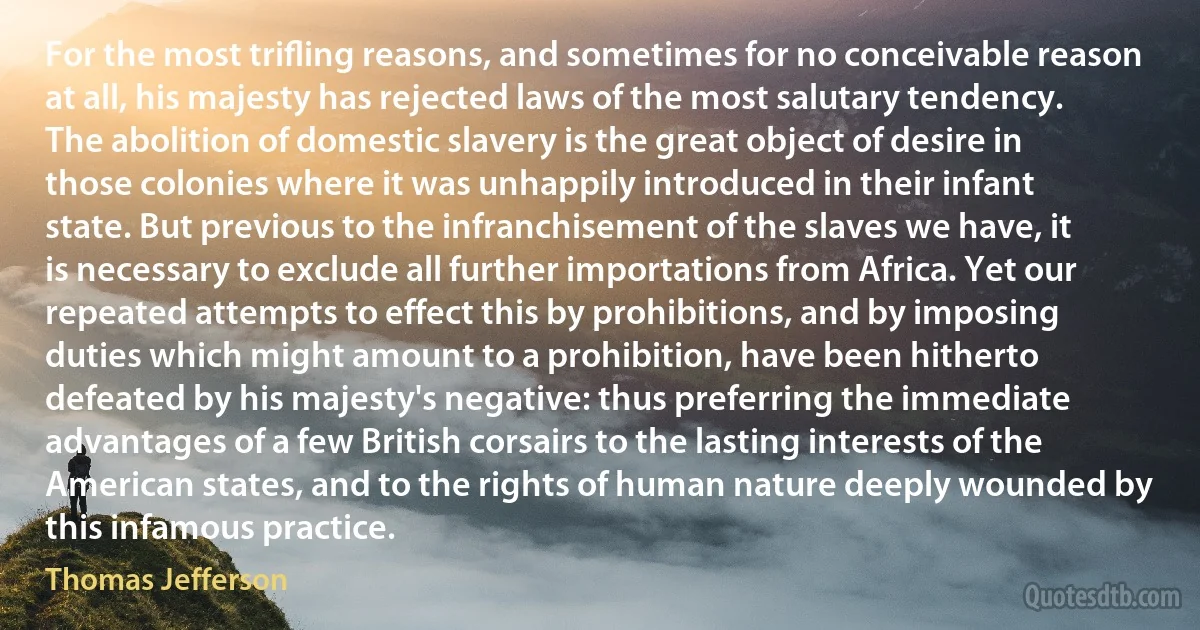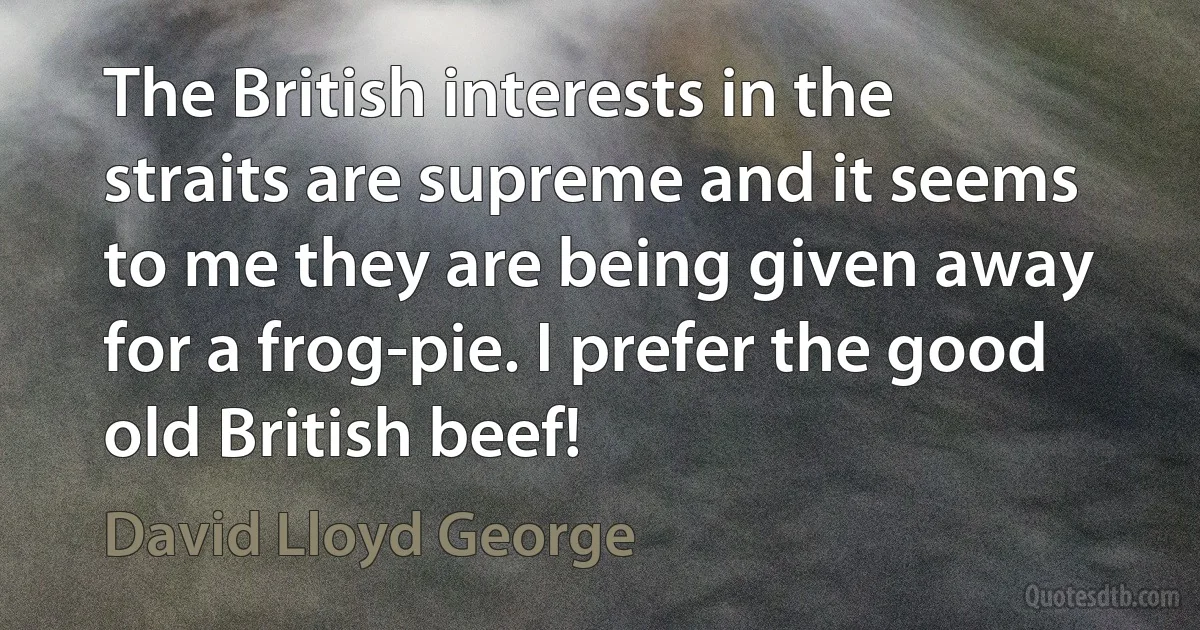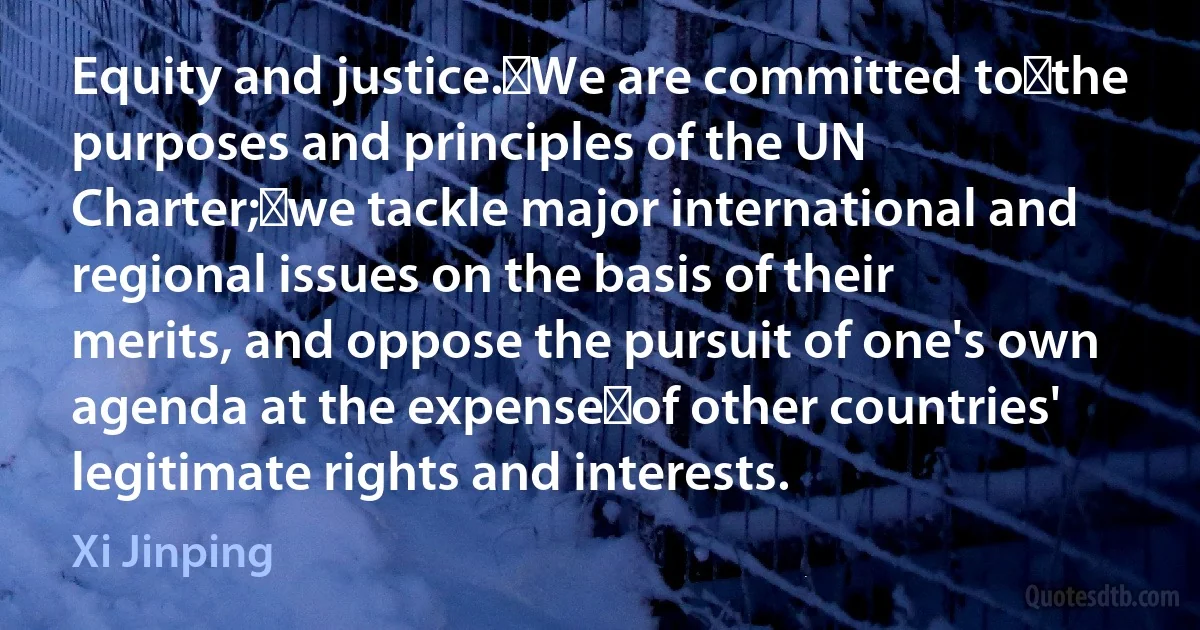Interests Quotes - page 79
Men by their constitutions are naturally divided into two parties: 1. Those who fear and distrust the people, and wish to draw all powers from them into the hands of the higher classes. 2. Those who identify themselves with the people, have confidence in them, cherish and consider them as the most honest and safe, although not the most wise depositary of the public interests. In every country these two parties exist, and in every one where they are free to think, speak, and write, they will declare themselves. Call them, therefore, liberals and serviles, Jacobins and Ultras, whigs and tories, republicans and federalists, aristocrats and democrats, or by whatever name you please, they are the same parties still and pursue the same object. The last appellation of aristocrats and democrats is the true one expressing the essence of all.

Thomas Jefferson
A zeal for different opinions concerning religion, concerning government, and many other points, as well of speculation as of practice; an attachment to different leaders ambitiously contending for pre-eminence and power; or to persons of other descriptions whose fortunes have been interesting to the human passions, have, in turn, divided mankind into parties, inflamed them with mutual animosity, and rendered them much more disposed to vex and oppress each other than to co-operate for their common good. So strong is this propensity of mankind to fall into mutual animosities, that where no substantial occasion presents itself, the most frivolous and fanciful distinctions have been sufficient to kindle their unfriendly passions and excite their most violent conflicts. But the most common and durable source of factions has been the various and unequal distribution of property. Those who hold, and those who are without property, have ever formed distinct interests in society.

James Madison
As embarrassing and awful as Trump is, he serves corporate power just like Joe Biden. The big corporate Democratic Party donors made it clear that if Bernie Sanders became the presidential nominee, they would support Trump. The donor class has created a system where they cannot fail. If it's Trump or Biden, Goldman Sachs doesn't lose, ExxonMobil doesn't lose, Raytheon doesn't lose, Citibank doesn't lose. There is no way that they can lose. They have rigged the system so that their interests are always served.

Chris Hedges
That founding principle of the party is also a founding principle of the United States. Even when we were a tiny fraction of our present size and breadth, the framers of our Constitution understood the need for holding ourselves together, whatever our differences. They created a constitutional structure and a Bill of Rights that would accommodate within one nation all manner of interests and opinions. Americans honor that principle in the national motto on the presidential seal: "e pluribus unum" - "out of many, one." Today, the United States is far more diverse than when we were a nation of 3 million people, but the principle remains the same: We are of many different backgrounds, beliefs, races and creeds, and we are one.

John Danforth
We are the dominant power. And that imposes on us a responsibility to be actually concerned with the well being of the world. Because we set the agenda. And there are a lot of problems, including terrorism and weapons of mass destruction, that can only be tackled by collective action. And we ought to be leading that collective action, instead of riding roughshod over other people's opinions and interests.

George Soros
You speak of my popularity, but it is out of the question now, and in doing so, my dear Prime Minister, I declare that I will not doubt between my duty and my love: a popularity based on deceiving a country about its true interests would weigh heavily on my conscience and that is a burden that I do not want to bear.

Leopold II of Belgium
Only Allah decides the fate of man but the Almighty also says man should pepare what necessary here on earth, then I can see that in the future we will meet another time, no matter what happens, what takes place, and I hope that the Iraqi people and American people will live in peace and have a relationship that express their national interests without one side harming the other.

Saddam Hussein
We all value too highly the immunity which this country has so long enjoyed from the horrors of an invaded land to endanger it for lack of timely prevision. That immunity at its very lowest has been for generations, and still is, a great national asset. It has undoubtedly given us the tranquillity and the security which has enabled us to build up our great national wealth. It is an essential part of that wealth. At the highest it means an inviolable guarantee for our national freedom and independence... We do not intend to put in jeopardy the naval supremacy which is so essential not only to our national existence, but, in our judgment, to the vital interests of Western civilisation.

David Lloyd George
Toryism would confiscate, in the interests of a private monopoly, the produce of the industry, the toil, the capital, the risk and the effort of others. Socialism would also confiscate, in the interests of a State monopoly, the efforts of the individual. Liberalism stands for a free opportunity for the individual to do the best for himself and the nation.

David Lloyd George
We have already transgressed the limit of safety, and the present disorders of our time are but precursors of other and imminent dangers. The rudder of our ship has ceased to move obedient to the helm. We are drifting on the seething tide of business, each one absorbed in holding his own in the giddy race of competition, each one engrossed in immediate cares and seldom disturbed by thoughts of larger concerns and ampler interests. Even our domestic life has lost much of its former warmth and geniality.

Felix Adler
Because morality is a social necessity, the moment faith in god is banished, man's gaze turns from god to man and he becomes socially conscious. Religious belief prevented the growth of a sense of realism. But atheism at once makes man realistic and alive to the needs of morality. Atheism alone is the surest way to morality. Those who oppose atheism in any form betray their vested interests in inequality of some kind of other.

Goparaju Ramachandra Rao
Masonically we are heirs of past. Our Masonic ancestors gave the craft devotion, loyalty and faith and made it an illustrious institution in the world. It should be our religious duty to appreciate and conserve the rich inheritance. In view of the increasing complexity of life and the maintenance of the best and highest traditions of the Craft, great care and concern should be displayed, if Freemasonry has to function in the best interests of humanity. It has been truly said, that an inspired and inspiring dedication to service should be the part of every Mason's life. Let us not give in to skepticism. There is all the difference between a pessimist and an optimist, in any field of human endeavour. One looks at his glass and cries "My glass is half empty”. The optimist looks and exclaims "My glass is half full”.

Jayachamarajendra Wadiyar
In order to help the rule of law evolve into the rule of justice, we must demand our right to access to information, we must adopt a Charter of Rights of Whistleblowers, demand transparency and accountability from our governments, and ensure that Parliaments revisit obsolete laws that perpetuate injustice. We must remain vigilant to ensure that the rule of justice is built day by day and that our courts and tribunals apply the existing legislation in good faith and not in the service of corporations and special interests, who do not want rights – but only privileges.

Alfred de Zayas
Differences and problems among countries, hardly avoidable, need to be handled through dialogue and cooperation on the basis of equality and mutual respect. One country's success does not have to mean another country's failure, and the world is big enough to accommodate common development and progress of all countries. We need to pursue dialogue and inclusiveness over confrontation and exclusion. We need to build a new type of international relations based on mutual respect, equity, justice and win-win cooperation, and do the best we can to expand the convergence of our interests and achieve the biggest synergy possible.

Xi Jinping
The right hon. Gentleman has argued, that the adoption of the plan proposed by the Government would confer advantage on the consumer, would increase the revenue, and would give increased scope to the industry of the manufacturer. We, Sir, argue, that with an amount of benefit to the revenue altogether inconsiderable, with a slight, nay an imperceptible relief to the consumer, and with detriment to the sure interests of the British manufacturer, you are asked to abandon what is nothing less than a great principle of humanity, that has received the most solemn sanction of the Legislature, the principle of hostility to the slave-trade and to slavery.

William Ewart Gladstone
The pressure for war is high and mounting. The people are opposed to it, but the Administration seems to have ‘the bit in its teeth' and is hell-bent on its way to war. Most of the Jewish interests in the country are behind war, and they control a huge part of our press and radio and most of our motion pictures. There are the ‘intellectuals' and the ‘Anglophiles,' and the British agents who are allowed free rein, the international financial interests, and many others.

Charles Lindbergh
They also elect a capitan de guerra, a kind of commander-in-chief of the warriors, whose office it is to defend their homes and their interests both in the field and in the council chamber. Though not very warlike, these Pueblos are generally valiant, and well skilled in the strategies of Indian warfare; and although they have been branded with cruelty and ferocity, yet they can hardly be said to surpass the Mexicans in this respect: both, in times of war, pay but little regard either to age or sex.

Josiah Gregg



